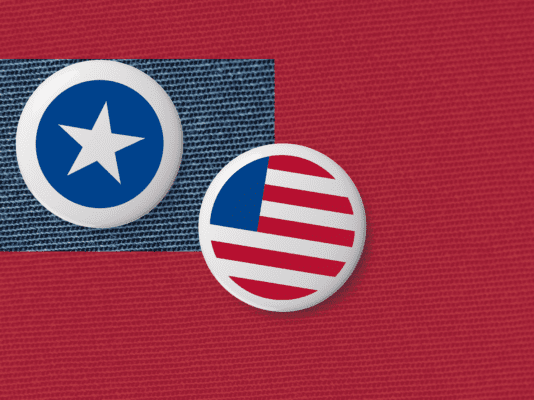Editor’s Note: We asked several ERLC research fellows to weigh in on books and thinkers that have helped shape and solidify their convictions and worldview. Be sure to check out other posts in this series here.
I was raised in Southeast Georgia, close to the buckle of the Bible Belt. I came of age in the mid-1990s, when the Christian Coalition was at the height of its influence, Newt Gingrich was making contracts with America, and it seemed like national revival was closely tied to the fortunes of the Republican Party. Those were heady days for politically conservative evangelicals, Bill Clinton’s presidency notwithstanding. I was a proud member of the College Republicans and listened regularly to D. James Kennedy and James Dobson on American Family Radio.
I was also what a friend calls a “cultural anorexic.” To my thinking, American culture was decadent and should be avoided by believers—with the exception, of course, of voting for Republican politicians. I didn’t listen to secular music for a couple of years. I didn’t watch any R-rated movies and avoided most PG-13 movies. I even avoided G-rated movies (at least the ones made by the Walt Disney Company). I wore a lot of Christian t-shirts and rocked a “What Would Jesus Do?” bracelet. As I have reflected on those years, I think I meant well. I really wanted to honor God. But I was an arrogant, condescending, and pretty ignorant religious reactionary.
All this began to change the summer between my junior and senior years of college. Simply put, I discovered Chuck Colson. Previously, I had listened to the “Breakpoint” radio program, so I knew Colson’s name. But that summer, I read his book How Now Shall We Live?. Next, I read The Body: Being Life in Darkness. I started subscribing to Christianity Today, and Colson’s columns became a monthly highlight. I started reading every essay of Colson’s that I could find on the internet. By the time I graduated from college, by God’s grace—and with Chuck Colson’s help—I was no longer a religious reactionary.
Through his writings, Colson taught me three lessons that have continued to shape how I think about the relationship between faith and culture.
Worldviews matter
Chuck Colson believed that worldviews matter. In How Now Shall We Live? Colson and his co-author, Nancy Pearcey, argue that, “The church’s singular failure in recent decades has been the failure to see Christianity as a life system, or worldview, that governs every area of existence.” They then go on to explain the basics of a Christian worldview: the goodness of creation, the horror of sin, the cosmic scope of redemption, a Christian view of culture, the importance of work and witness and worship.
How Now Shall We Live? introduced me to the thinking of Francis Schaeffer and Abraham Kuyper, two figures who further helped to reorient my thoughts about faith and culture. In fact, it would be fair to say that my understanding of the Christian worldview has been nurtured through a combination of Schaeffer, Kuyper, John Calvin, C. S. Lewis, Carl Henry, William Wilberforce, Al Wolters, Richard Mouw and Jonathan Edwards. Colson put me on the trail of about half of these figures.
Cultural engagement is more than political engagement
Thanks to Colson, I had come to believe that the gospel transforms the mind and the Bible provides a particular grid through which to interpret all of life. I now had a healthier, more robust, more biblical way of thinking about how best to engage culture. Politics remained an interest, but as I matured in my understanding of the Christian worldview, I became less partisan. Increasingly, I was able to maintain a bit more critical distance from any particular political party. I now knew that politics was only part of the story—and a part that was as likely to disappoint as any.
As a Christian, I’m to care about how God is at work in the arts, and education, and the sciences, and the family, and public justice. Everything matters to God. Colson introduced me to the Kuyperian concept of “sphere sovereignty,” a topic I later learned about in greater depth from Kuyper himself and other Kuyperian thinkers. Christian should be concerned with the full range of human existence and how God’s common grace is displayed in every human culture. I’m committed to what I think is a biblical vision of human flourishing, and I’m indebted to Chuck Colson for first putting me on this path.
The Church is bigger than I thought it was
The second Colson book I read was actually his earlier work, The Body. In that book, Colson and co-author Ellen Vaughn looked at how various Christians from every denominational tradition were living out their faith in witness and service to the world. Colson argued that the church is both against the world and for the world, a balancing act that should be reflected in our cultural engagement. Tim Keller and others have captured this same theme in recent years by referring to the church as a counterculture for the common good.
I found Colson’s view of the universal church challenging. I was a Baptist collegian who was suspicious of other denominations. But without rejecting my sincere and strong commitment to biblical doctrines such as the sufficiency of Scripture and justification by faith alone, I came to recognize that God’s people transcends our denominational traditions. Our denominations have real and important differences. Furthermore, nominal faith remains a persistent threat. Nevertheless, all who claim Jesus is Lord should find as many ways as possible to work together to be salt and light in a world that hates everyone who acknowledges the Bible as God’s Word, affirms biblical ethics, and embraces the faith summarized in the creedal consensus of the ancient church.
I’m thankful for the life and ministry of Chuck Colson. I’d urge those reading this blog post to read Colson’s many writings. I’d also encourage you to be on the lookout for Owen Strachan’s forthcoming book The Colson Way: Loving Your Neighbor and Living with Faith in a Hostile World.









